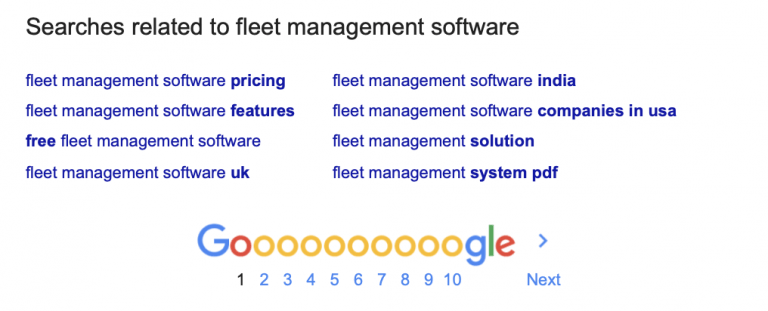
What are long-tail keywords and how to find them
Whenever someone is discussing search engine optimisation, keyword strategy, or keyword research, long-tail keywords are bound to come up in conversation sooner or later.
That’s because it has become more difficult than ever to rank for competitive keyword phrases — especially with a new website that is still trying to establish its place in the SERPs. And long-tail keywords give even newer websites an opportunity to rank for important keywords.
If you do not know what long-tail keywords are and how to find them, this post will explain all that to you.
What are long-tail keywords?
In case you do not know, long-tail keywords are longer search queries that have relatively low search volume and level of competition.
For example, “shoes” is a head or broad keyword. While it will have a very high search volume, it will also be insanely tough to rank for this broad keyword.
On the other hand, “red Reebok shoes for men” is a long-tail keyword phrase that is more targeted. This keyword phrase will have a lower search volume, but it will also be less competitive, allowing even newer websites an opportunity to rank for it in the SERPs.
Moreover, long-tail keywords are also great for a high conversion rate. When searchers get more targeted with their queries, they are likely to land on the right web page and convert.
How to find long-tail keywords
Now that you know what long-tail keywords are, let’s find out how you can easily find them on the web.
Here are a few ways to discover long-tail keywords:
1. Google Suggestions
Have you ever noticed that whenever you start writing a search query, Google often starts giving you various suggestions based on its predictions?
That’s an excellent source for finding relevant long-tail keywords, because these are suggestions that people are already searching for on Google, so you know there is an audience for that long-tail keyword phrase.
2. Google Related Search
After noting down Google’s long-tail keywords suggestions, just scroll down to the bottom of the page until you find Google’s Related Searches.
You will likely find up to 8 long-tail keyword suggestions here. Here is an example.
3. Search term reports from PPC campaigns
If you are running PPC campaigns, you can also use the Google AdWords search term report to unearth a goldmine of targeted and relevant long-tail keywords.
The Google AdWords search term report lists the specific search queries that online searchers type in. These are the exact search queries that trigger your ads and drive traffic to your website.
From this list, it is an excellent idea to identify high-converting long-tail keywords and create long-form content around those keyword phrases for some organic traffic.
4. Q&A websites
Q&A websites, such as Yahoo Answers and Quora, are also an excellent source for long-tail keywords. More importantly, on these websites, you will find long-tail keyword phrases that people actually need answers for.
5. Third-party keyword research tools
You can also use third-party keyword research tools to find even more long-tail keywords and keyword phrases. Some of the popular third-party keyword research for the purpose of discovering long-tail keywords are:
A few of these keyword tools are paid, but there are also some free ones on this list that you can start using right away.
6. Forums
One of the best ways to unearth plenty of long-tail keywords is to search on various industry forums. Reddit is another place that you must search.
The most common method is to visit each forum and use its in-built search functionality. In case you do not know which forums are relevant to your niche, the best way is to use the following search strings to find relevant forums:
- “Forum” + “your main keyword”
- “Board” + “your main keyword”
- “Discussion board” + “your main keyword”
- “Your main keyword” + discussion
Here is an example.
Conclusion
As we mentioned earlier, long-tail keywords are excellent for acquiring free, organic traffic — especially for new websites. However, even well-established websites regularly use long-tail keywords to rank for competitive keyword phrases and have a higher conversion rate by driving targeted traffic to their product pages.
Once you identify a bunch of relevant long-tail keyword phrases, you can sprinkle them throughout the web page to open new doors for traffic.










